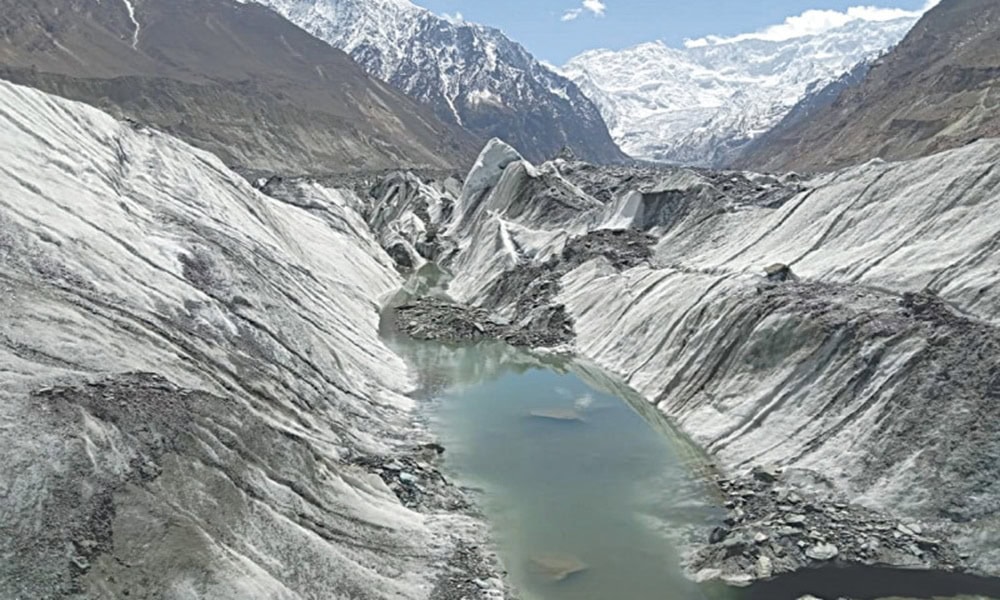The Asian Development Bank has developed the ‘Glaciers to Farms’ programme for Pakistan to ensure the conservation of water, agriculture, and energy resources.
The Asian Development Bank (ADB) has introduced a new initiative titled ‘Glaciers to Farms’ aimed at addressing Pakistan’s growing climate and environmental challenges. The programme focuses on protecting the country’s key natural resources—water, agriculture, and energy—by assessing the impacts of melting glaciers and developing long-term solutions.
According to ADB, the programme will produce a comprehensive report on the economic and environmental effects of glacial melting across Pakistan’s northern regions. These findings will guide future policies on water resource management, sustainable agriculture, and renewable energy systems.
READ MORE: KP Tourism Authority Mandates Online Registration for All Travel Businesses
ADB stated that global experts have been invited to contribute recommendations on how Pakistan can adapt to rapid climate change. These proposals will be discussed during the International Convention of the East Asian Economic Association, scheduled to be held in the Philippines from November 8 to 9.
Pakistan, home to some of the world’s largest glacial reserves outside the polar regions, faces a serious threat from rising temperatures. Glaciers in Gilgit-Baltistan and Khyber Pakhtunkhwa are melting faster than expected, leading to flash floods, reduced water storage, and declining agricultural yields.
Experts warn that if these trends continue, Pakistan could face acute water shortages that would severely affect both food security and power generation.
Through the ‘Glaciers to Farms’ initiative, ADB plans to support Pakistan in developing modern irrigation systems, improving water efficiency, and promoting climate-smart farming practices.
The programme also aims to strengthen community resilience by introducing technologies that can help farmers manage unpredictable weather patterns and drought conditions.
The ADB hopes this framework will serve as a vital policy tool for Pakistan to prepare for future climate risks. By linking the melting glaciers of the north to the farmlands of the plains, the initiative underscores how climate change in the mountains directly affects livelihoods, food supply, and energy across the country.
As Pakistan continues to face one of the most severe climate crises in South Asia, experts believe that international partnerships such as this one could play a crucial role in protecting its natural resources and ensuring a sustainable future.









